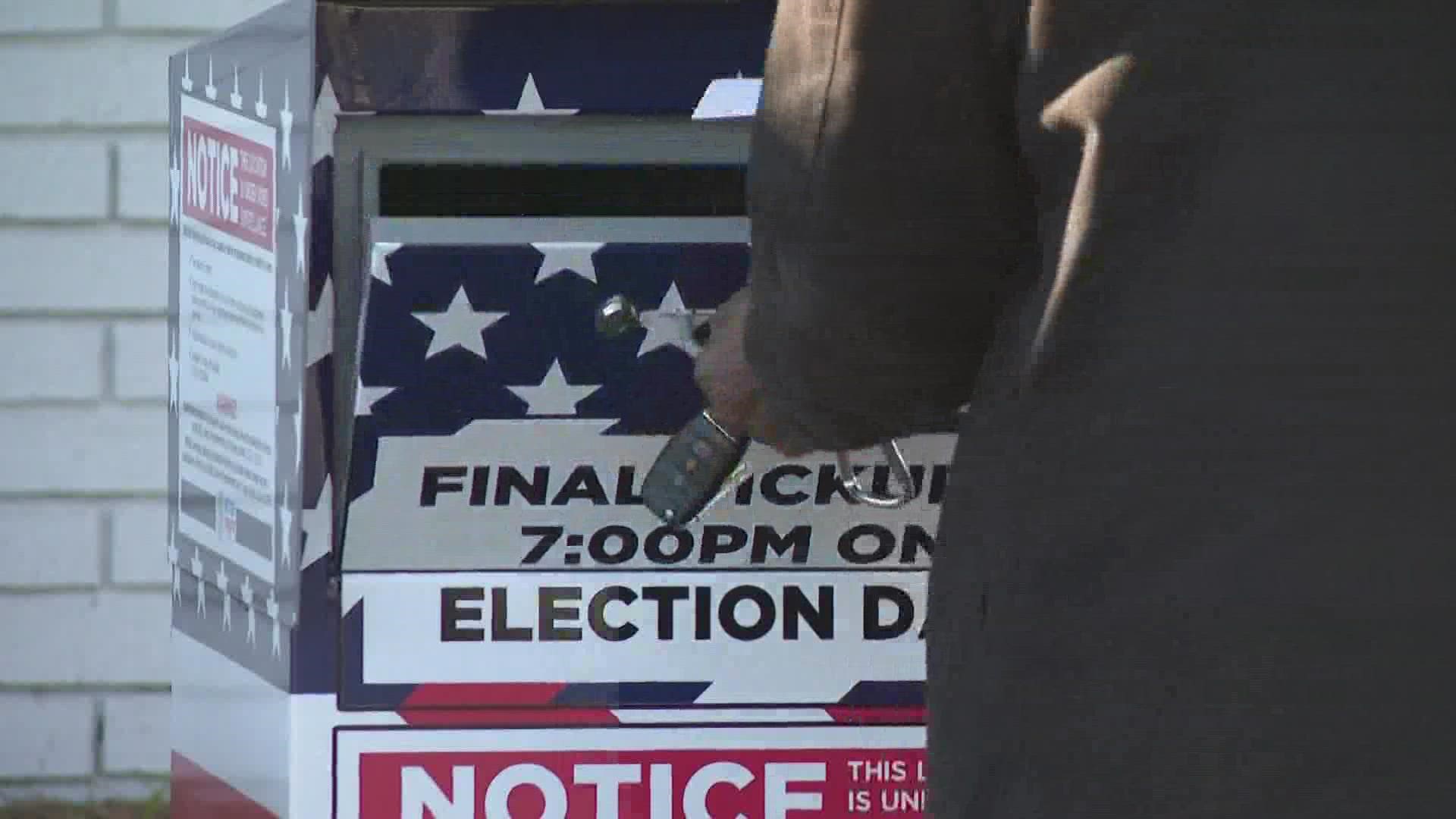PORTLAND, Maine — Since the 2020 election, tension has been rising on Capitol Hill and across the country over voter rights. It's a battle about how people cast their ballots, how votes are counted, and who oversees that process.
With the U.S. Senate expected to vote this week on sweeping voting rights legislation, Maine's Independent Senator Angus King said his vote on the issue is the most important one he will ever cast in his life.
"I'm worried that if we don't do something about this, it's only going to continue, it's going to get worse," King told NEWS CENTER Maine. "We're changing the structure. We're essentially rigging elections in the future and it's going to undermine confidence in the election."
The proposed legislation, The Freedom to Vote Act and the John Lewis Voting Rights Advancement, aims to undo GOP-led voting changes in a number of states. Democrats call the changes voter suppression.
King says Mainers wouldn't directly feel the impact of these changes because the state already participates in same-day registration and absentee voting, and has drop-boxes and mail-in voting.
"We have all the things that people feel are important in terms of their voting system," King said. "So in Maine, you know, we're in we're in good shape."
U.S. Sen. Susan Collins, R-Maine, does not support either voting rights act put forward by Democrats. Instead, she and a group of 12 senators, including Joe Manchin of West Virginia and Kyrsten Sinema of Arizona, are working on legislation of their own. Part of that legislation involves updating the Electoral Count Act which is a law that is nearly 150 years old.
"We're also looking at having penalties for the harassment or intimidation of an election official or an irregular removal of an election official who certifies results when there's no indication of wrongdoing," Collins said. "We're looking at re-authorizing the Elections Assistance Commission, which provides grants to states to help them improve their voting procedures, for example."
Collins said she would like to see those grants broadened so that they could be used to recruit and train poll workers or buy voting machines that have a paper trail to conduct a post-election audit.
King and Collins remain split on the issue of the filibuster as well. Collins calls it an important safeguard.
"It's one that is intended to promote patience and perseverance and bipartisanship, not the raw exercise of power; and it's an important procedure," Collins said. "Moreover, to get rid of the filibuster under the Senate rules is supposed to require 67 votes and that's why I think it's just wrong for the Democratic leader to circumvent that 67-vote requirement in order to eviscerate the filibuster."
King has been opposed to changing the filibuster for almost a decade but said that if it comes down to a Senate rule versus democracy, he knows where he stands.
He said the discussion has centered around Manchin and Sinema for holding out on the legislation. King said it doesn't give a good representation of the division they are dealing with.
"There are 50 Republicans who are also saying, 'Absolutely no, and not only that, we don't even want to debate the bill.' We've brought these bills up three times in the last three or four months, and they have voted unanimously not to even allow the bill to come to the floor for debate, so they're not interested in dealing with this issue," King said. "So, what will the vote be? Later this week or next week? I can't predict, but I can tell you that it's one that we're all going to have to live with for a long time."
Lawmakers are expected to take up the issue again on Wednesday in Washington.

